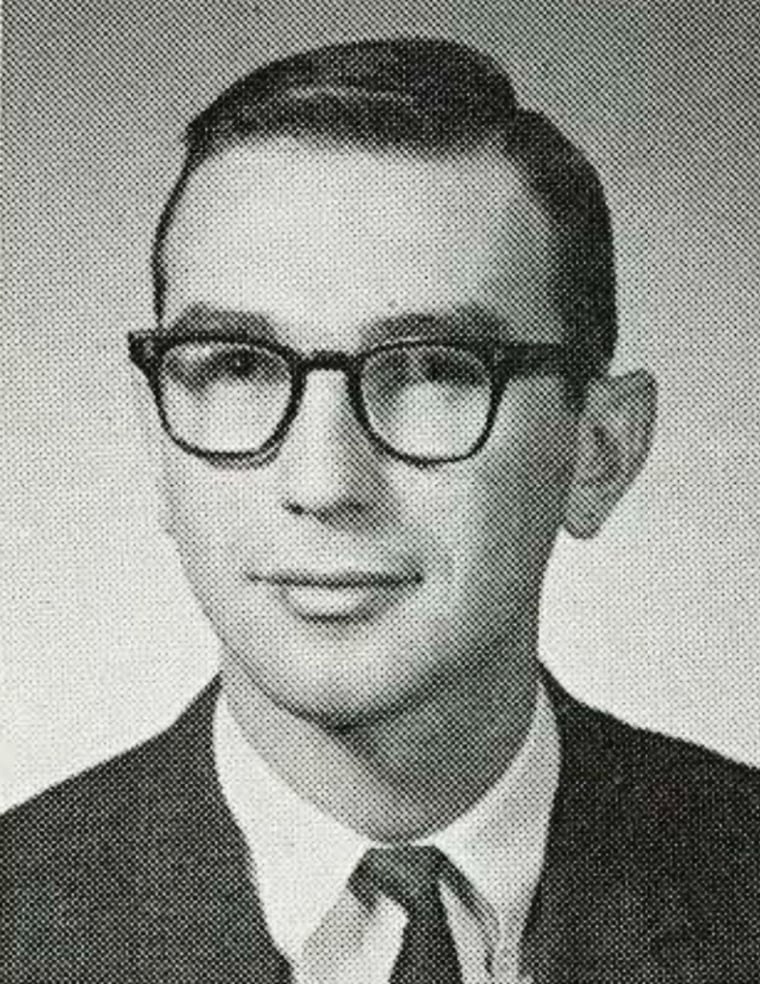This article is part of “Dealing the Dead,” a series investigating the use of unclaimed bodies for medical research.
CORNELIUS, N.C. — Last year, Karen Wandel received an alarming message: Her father had died more than five months earlier in a South Carolina hospital and, when no family claimed his body, the hospital sent it to be used for medical research.
Wandel had a strained relationship with her father, Libero Marinelli Jr., a widower, and hadn’t spoken to him in years. But as a lawyer in North Carolina, she wasn’t hard to find. Neither were Marinelli’s brother in California or sister in Massachusetts, who had kept in touch on birthdays and holidays. But they all learned of his death only after Marinelli’s brother sent him a Christmas card that was returned unopened.
Wandel remains stunned by the treatment of her father, who, as a former Army service member, was entitled to be buried in a veterans’ cemetery but whose corpse instead was first sent to a body broker in another state.
 Libero Marinelli Jr. served as an Army lawyer during the Vietnam War.Courtesy Karen Wandel
Libero Marinelli Jr. served as an Army lawyer during the Vietnam War.Courtesy Karen Wandel
“I just want somebody to look me in the eye and say, ‘What we did was wrong, and we are sorry. We are sorry to your family, and we’re sorry that your father suffered this indignity,’” Wandel said. “Particularly after he served his country.”
Supplying unclaimed bodies for medical research is widely considered unethical, and most major medical schools — and a few states — have halted the practice. And yet it continues, in part due to the health care industry’s steady demand for human specimens and local officials’ feeling overwhelmed by a rise in bodies without next of kin to claim them.
Recommended


What’s difficult to gauge is just how often it occurs: The body business has no federal regulation or oversight, and many states do not track the practice.
NBC News spent months documenting the use of unclaimed bodies in medical research, submitting public records requests to dozens of state agencies, county coroners and medical schools. The records offer glimpses of where and how this is occurring.
Since 2020, a community college in North Carolina has received 43 unclaimed bodies from local welfare agencies and medical examiners to teach embalming to funeral services students. In Pennsylvania, a state body-donation program that distributes human remains to medical schools said that it had received 58 unclaimed bodies from county coroners, medical examiners, hospitals and other facilities since 2019. Louisiana State University provided records on a single 2023 case in which an unclaimed car wreck victim was sent to the school’s forensic department for study; a university spokesperson said the lab prioritizes “ethical practices and respect for the dignity of individuals.”
But in many states where it is legal to use unclaimed bodies for medical research, officials told NBC News that they did not have records of any such cases or denied requests for detailed information. That included Pennsylvania, where an official said the body-donation program could not share how the 58 unclaimed bodies were used. In Illinois, a 2018 law requires record-keeping of the unclaimed bodies provided to medical institutions, but a spokesperson for the state agency responsible for the task said it is not doing it because no one allocated any money for the effort.
“There could be a lot more happening that we don’t know about,” said Joy Balta, an anatomy professor at Point Loma Nazarene University in California. He wants to see more regulation of the body donation industry and has written guidelines that call for donation programs to stop using unclaimed bodies. Otherwise, he said, “There’s no way to know about it.”
The most extensive use of the unclaimed dead that reporters found was at a Fort Worth-based medical school, the University of North Texas Health Science Center. NBC News reported this year that the center collected thousands of unclaimed bodies from county medical examiners and leased some out to private companies and the Army, often without consent from any next of kin. The center halted the use of unclaimed bodies in response to NBC News’ reporting, citing failures of “respect, care and professionalism.”